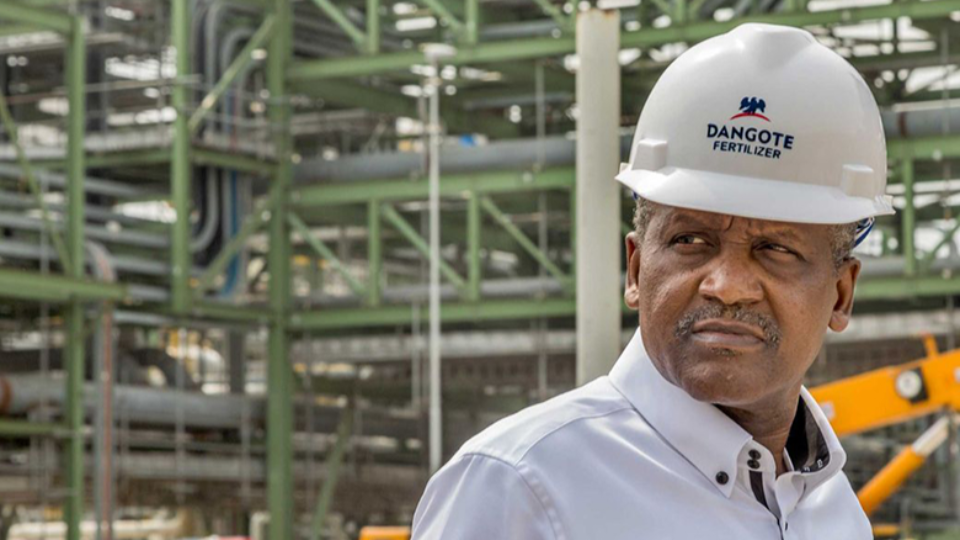Dangote Refinery Withdraws Lawsuit Against Nigerian Fuel Importers
Dangote Refinery, Africa's largest oil refinery, has withdrawn its high-profile lawsuit against the Nigerian Midstream and Downstream Petroleum Regulatory Authority (NMDPRA) and several major fuel importers, including the state-owned Nigerian National Petroleum Company Limited (NNPC Ltd). The decision, formalized through a notice of discontinuance filed on July 28, 2025, at the Federal High Court in Abuja, marks a surprising turn in a legal battle that had drawn widespread attention. The lawsuit, which sought 100 billion naira (approximately $66 million) in damages, was discontinued without any stated reasons, leaving industry observers speculating about the motivations behind the move.
The legal action, initiated by Dangote Refinery, aimed to challenge the NMDPRA's issuance of fuel import licenses to several companies, including NNPC Ltd, AYM Shafa Ltd, A.A. Rano Ltd, T. Time Petroleum Ltd, 2015 Petroleum Ltd, and Matrix Petroleum Services Ltd. Dangote argued that these licenses violated provisions of the Petroleum Industry Act (PIA), which stipulates that import permits should only be issued to address domestic production shortfalls. The refinery, with a capacity of 650,000 barrels per day, positioned itself as capable of meeting Nigeria's fuel demands, thereby rendering imports unnecessary. The lawsuit also claimed that the continued importation of petroleum products undermined the refinery's operations and Nigeria's goal of achieving energy independence.
The withdrawal notice, filed by Dangote's legal team led by George Ibrahim, stated simply that the plaintiff was discontinuing the suit against all defendants with immediate effect. No further explanation was provided, and it remains unclear whether an out-of-court settlement was reached. The case was scheduled for a hearing on September 29, 2025, at which point the court may address any requests from the defendants for legal costs or formally strike out the suit. Neither the NMDPRA nor the co-defendants have issued public comments on the withdrawal, adding to the uncertainty surrounding the decision.
This development follows a contentious period in Nigeria's downstream petroleum sector. Dangote Refinery, located on the outskirts of Lagos, began operations in January 2024, producing diesel, naphtha, and jet fuel, and later started gasoline production in September 2024. The refinery has been hailed as a potential game-changer for Nigeria, a major oil producer that has long relied on imported refined products due to limited domestic refining capacity. However, tensions have persisted between Dangote and regulatory authorities, as well as local fuel traders. Earlier disputes included allegations from Dangote that the NMDPRA allowed substandard fuel imports, while the regulator countered that the refinery's output, particularly its diesel, contained high sulfur levels compared to imported products.
The lawsuit's withdrawal comes amid broader shifts in Nigeria's energy policy landscape. In recent months, the government has taken steps to address some of the refinery's concerns, including a directive from President Bola Tinubu to facilitate crude oil and refined product sales in naira. This policy, approved by the Federal Executive Council, aimed to reduce foreign exchange pressures and stabilize fuel prices, potentially alleviating some of Dangote's grievances about import competition. Industry insiders suggest that such interventions may have influenced the decision to drop the lawsuit, though no official confirmation has been provided.
The discontinuation of the legal action also raises questions about the future dynamics of Nigeria's fuel market. Dangote Refinery has been positioning itself to dominate domestic fuel supply, with plans to directly distribute gasoline to retail stations, manufacturers, and other large consumers starting in August 2025. This move has sparked concerns among local fuel traders, who fear that the refinery's scale and resources could lead to a monopoly, potentially driving up prices for consumers. The Petroleum Products Retail Outlets Owners Association of Nigeria has previously voiced worries about the impact of Dangote's expansion on their businesses, particularly with the refinery's acquisition of 4,000 compressed natural gas-powered trucks to enhance its distribution network.
Despite the withdrawal of the lawsuit, the underlying issues of competition, regulation, and energy security remain unresolved. Nigeria's downstream sector continues to grapple with balancing the interests of domestic refineries and legacy importers. The NMDPRA has defended its issuance of import licenses as necessary to prevent fuel shortages and promote a competitive market, a stance supported by some industry stakeholders. Meanwhile, Dangote Refinery maintains that its operations are critical to reducing Nigeria's dependence on imported fuel, a goal that aligns with national aspirations for energy self-sufficiency.
As the September 29 court date approaches, all eyes will be on the Federal High Court to see how the case is formally concluded. The withdrawal of the lawsuit may signal a shift toward dialogue or alternative resolutions between Dangote Refinery and its counterparts in the industry. For now, the decision marks a pivotal moment in the ongoing evolution of Nigeria's petroleum sector, with implications for the country's economic and energy landscape.


